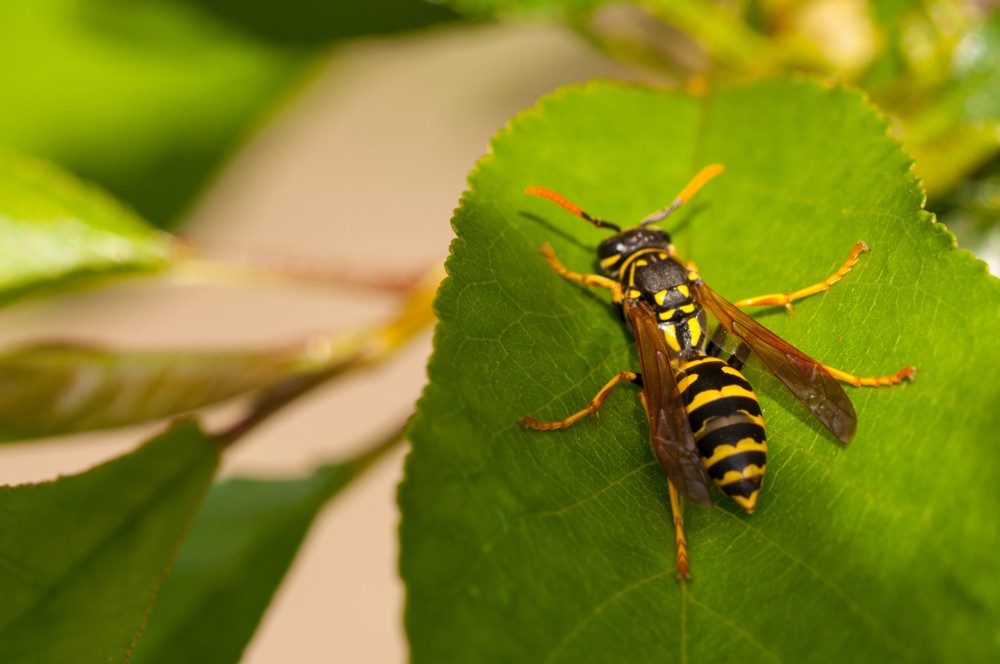Take Flight: Natural Ways to Deter Wasps from Nesting on Your Property

“Summertime brings warmth, sunshine, and unfortunately, wasps. These buzzing pests can quickly turn a pleasant outdoor gathering into a nightmare if they decide to build their nest on your property. But fear not! There are natural ways to deter these stingers from setting up shop in your yard. So let’s take flight and explore some effective methods for keeping wasps at bay!”
Introduction to Wasps and Their Nesting Habits
In the early spring, wasps wake up from their winter slumber and start to build their nests. Wasps are social insects that live in colonies. A colony can have thousands of wasps in it. The colony is made up of three types of wasps: drones, workers, and the queen.
The drone wasps are the males of the colony and their job is to mate with the queen. The worker wasps are sterile females and their job is to build and protect the nest, gather food, and care for the young. The queen is the only fertile female in the colony and her job is to lay eggs. nid de frelon essonne
Wasps build their nests out of a material called paper. To make paper, they mix saliva with wood pulp that they scrape off of trees. They use their mandibles (jaws) to chew the wood pulp into a pulp mixture which they then spit out onto a surface to form a sheet of paper. Once they have a sheet of paper, they mold it into shape using their bodies to create cells for brood rearing and storage.
Wasps typically build their nests in protected areas such as under eaves or in hollow trees. If you find a wasp nest on your property, it’s best to leave it alone as disturbing a nest can anger the wasps and cause them to sting. If you must remove a nest, do so at night when all the wasps are back inside it and not
Natural Deterrents for Wasps
There are a few natural deterrents for wasps that can help keep them from nesting on your property. One is to plant certain types of plants that repel wasps, such as eucalyptus, mint, or citronella. You can also make a natural wasp repellent by mixing water and vinegar in a 1:1 ratio and spraying it around the perimeter of your property. Another effective method is to hang strips of yellow plastic around the area where you don’t want wasps to nest. The contrast of the yellow against the darkness will deter them from entering. Finally, you can also try using a sonic wasp repeller, which emits a high-pitched sound that only wasps can hear and deters them from the area.
Insecticides to Use on Wasps
There are many effective insecticides you can use to get rid of wasps. Here are a few of the most popular options:
• Talstar P: This insecticide is effective against a variety of pests, including wasps. It works by paralyzing the nervous system of the pest, causing death within minutes.
• Cypermethrin: Cypermethrin is another effective insecticide against a variety of pests, including wasps. It works by disrupting the nerve cell function, causing death within minutes.
• Permethrin: Permethrin is another popular insecticide that works by paralyzing the nervous system of the pest, causing death within minutes.
• Deltamethrin: Deltamethrin is another effective insecticide against a variety of pests, including wasps. It works by disrupting the nerve cell function, causing death within minutes.
DIY Remedies for Getting Rid of Wasps
If you’re looking for a natural way to get rid of wasps on your property, there are several DIY remedies you can try. One popular method is to mix together equal parts white vinegar and water in a spray bottle, and then use it to target the wasp nest. You can also try creating a trap by mixing together sugar, water, and a small amount of dish soap in a bowl or container. Leave the trap out near the wasp nest, and the wasps will be drawn in by the sweet scent and then drown. Another effective remedy is to mix together equal parts baking soda and sugar, and then sprinkle it around the perimeter of your property. The wasps will eat the mixture and die.
Best Practices for Keeping Wasps Away
When it comes to wasps, prevention is key. Here are some best practices for keeping wasps away:
-Keep your property clean and free of food scraps or other potential sources of food.
-Trim back any overgrown vegetation that could provide shelter for wasps.
-Seal up any cracks or openings around your home that could provide entry points for wasps.
-Use wasp traps to catch and remove Wasps from your property.
-If you have a wasp nest on your property, call a professional for removal.
Conclusion
Wasps can be annoying pests if they decide to settle on your property, but luckily there are many natural ways you can deter them. A combination of strategies like keeping food sealed and clean, eliminating moist nesting sites, planting wasp-deterring plants and using natural repellents will help keep them away from your home or garden. Keep these tips in mind the next time you need to take flight and get rid of those pesky wasps!
